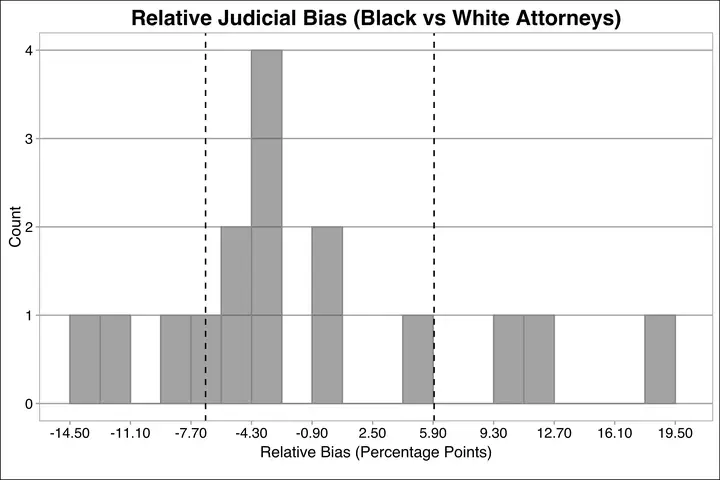
Abstract
I study gender and racial bias by judges against lawyers arguing before them. To do so, I exploit the random assignment of judges and public defenders to bail cases in Miami-Dade County. I find evidence of bias in the treatment of Black lawyers but not Hispanic or female lawyers. The standard deviation in the success rate of Black attorneys across judges is 3.4 percentage points larger than expected from sampling variation alone. The findings suggest that racial bias exists in courtrooms beyond that against criminal defendants.
Publication
Working Paper